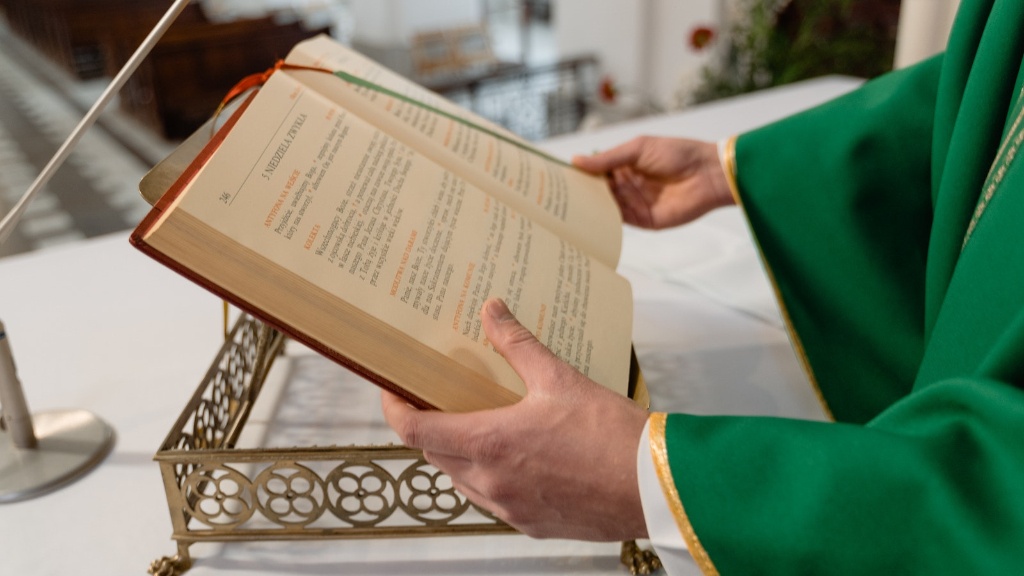Cutting off the foreskin of the penis has been practiced for centuries by many cultures and religions. The reasons for circumcision vary, but it is often seen as a way to reduce sexual pleasure and make men less likely to engage in extramarital sex. In the Bible, circumcision is first mentioned in the book of Genesis. Abraham, the patriarch of the Jewish people, was instructed by God to circumcise himself and all the males in his household. Circumcision became a symbol of the covenant between God and the Jewish people.
There are several theories as to why circumcision started in the Bible. One is that it was a hygiene measure, meant to reduce the chances of illness and infection. Another is that it was a sign of covenant between God and his people, a physical symbol of their commitment to him. Still another possibility is that it was a way of distinguishing the Israelites from other peoples in the region. Whatever the reason, circumcision was clearly considered important by the writers of the Bible, and it has remained a central part of Jewish and Muslim religious tradition.
What was the first reason for circumcision?
It is interesting to note that circumcision probably started as a test of bravery and endurance, a ritual mutilation, a sacrificial spilling of blood, rather than the initiation rite it has become in recent centuries. This is something that anthropologists agree on. It is likely that these cultures saw circumcision as a way to test someone’s bravery and endurance. It was also seen as a way to mutilate someone, which was probably seen as a sacrificial act. In recent centuries, however, circumcision has become more of an initiation rite. This is likely due to the fact that it is seen as a way to cleanse oneself and to become a member of a community.
Male circumcision is a surgical procedure in which the foreskin (or prepuce) is removed from the penis. This ancient practice has been performed for religious, cultural, and traditional reasons for centuries. In recent years, there has been an increase in the number of medical studies that have shown potential health benefits of circumcision, such as a reduced risk of urinary tract infections, sexually transmitted diseases, and penile cancer. However, circumcision is a personal decision and should only be made after careful consideration of all the risks and benefits.
Why did the Jews invent circumcision
Circumcision is a Jewish law that requires the physical removal of the foreskin of the male penis. It is seen as the physical representation of the covenant between God and Abraham described in the Old Testament. Circumcision is required for the inclusion of males in the Jewish faith.
Circumcision has played an important role in Christian history and theology. The circumcision of Jesus is celebrated as a feast day in the liturgical calendar of many Christian denominations. Paul’s teaching that physical circumcision was unnecessary for membership in the new covenant was instrumental in the development of Christianity.
Do Catholic males get circumcised?
Although circumcision is not part of Catholic practice, the circumcision of Jesus in accordance with Jewish practice is commemorated.
Circumcision was adopted by many cultures as an alternative to human sacrifice. The American Indians were one of the first cultures to adopt circumcision as a way to avoid human sacrifice. Circumcision was seen as a way to cleanse the body and soul, and it was believed that it would prevent evil spirits from entering the body.
Why does God ask for circumcision?
The circumcision is a sign of the covenant between God and the Jewish people. It is a physical reminder of the eternal agreement between these two parties. The commandment to circumcise every male child among the Jews is a way to keep this covenant alive and visible.
The main reason why Catholics don’t circumcise is because the Roman Catholic Church has denounced religious circumcision for its members. In the 11th Council of Florence in 1442, the Church warned of loss of salvation for converts who observe it.
What does the Bible say about the foreskin
This is my covenant which you shall keep, between me and you and your children after you; Every man child among you shall be circumcised. You shall circumcise the flesh of your foreskin; and it shall be a token of the covenant between me and you.
The ‘holy foreskin’ of Jesus Christ was considered to be the holiest of relics for nearly 1,000 years before the Vatican threatened excommunication to anyone who spoke of it. The relic was deemed so taboo that the Vatican felt the need to take action to prevent people from discussing it.
What is the religious purpose of circumcision?
Islam teaches that circumcision is a confirmation of one’s relationship with God. The practice is also known as ‘tahera’, which means purification. With the global spread of Islam from the 7th century AD, male circumcision was widely adopted among previously non-circumcising peoples.
Muslim males are circumcised for religious reasons, to follow the sunnah of Prophet Muhammad. There is also an attempt to label circumcision as a contributor to cleanliness and personal hygiene, to give the practice scientific legitimacy and a moral foundation.
Are most US citizens circumcised
The present rates of vaccination vary widely across the world. In some countries, like Israel and many Muslim-majority countries, the rate is over 90%. In other countries, like South Korea, the rate is much lower, at 863%. The vaccination rate in the United States is somewhere in the middle, at 80%. Other countries, like Australia, have even lower rates, at 58%. And in some countries, like South Africa, the rate is as low as 45%. The vaccination rate in the United Kingdom is even lower, at 207%. But in some countries, like Japan and Honduras, the vaccination rate is under 1%.
Assuming you would like information regarding circumcision:
Circumcision is the surgical removal of the foreskin, which is the skin that covers the head of the penis. It is a fairly common procedure, with the Centers for Disease Control and Prevention estimating that 60% of newborn boys in the US are circumcised. Circumcision rates vary by region, with the highest rates in the Midwest and Northeast and the lowest in the West.
Does circumcision reduce pleasure?
Based on the available evidence, it seems that medical male circumcision does not have a negative impact on sexual function, sensitivity, sexual sensation, or satisfaction. This is good news for those who are considering or have already undergone circumcision.
Sikhism does not require circumcision of either males or females, and criticizes the practice.
Final Words
The biblical stories of Isaac and Moses both include mentions of circumcision. In the Abrahamic tradition, circumcision was seen as a sign of the covenant between God and his people. It was also seen as a way to mark one’s body as being part of the community of believers.
Some believe that circumcision started with the Biblical figure Abraham. Genesis 17:10-14 says, “This is my covenant, which ye shall keep, between me and you and thy seed after thee; Every man child among you shall be circumcised. And ye shall circumcise the flesh of your foreskin; and it shall be a token of the covenant betwixt me and you. And he that is eight days old shall be circumcised among you, every man child in your generations, he that is born in the house, or bought with money of any stranger, which is not of thy seed. He that is born in thy house, and he that is bought with thy money, must needs be circumcised: and my covenant shall be in your flesh for an everlasting covenant. And the uncircumcised man child whose flesh of his foreskin is not circumcised, that soul shall be cut off from his people; he hath broken my covenant.” So, according to this passage, Abraham was instructed by God to circumcise himself and all males in his household. This act would then be a sign of the covenant between God and Abraham’s descendants.





